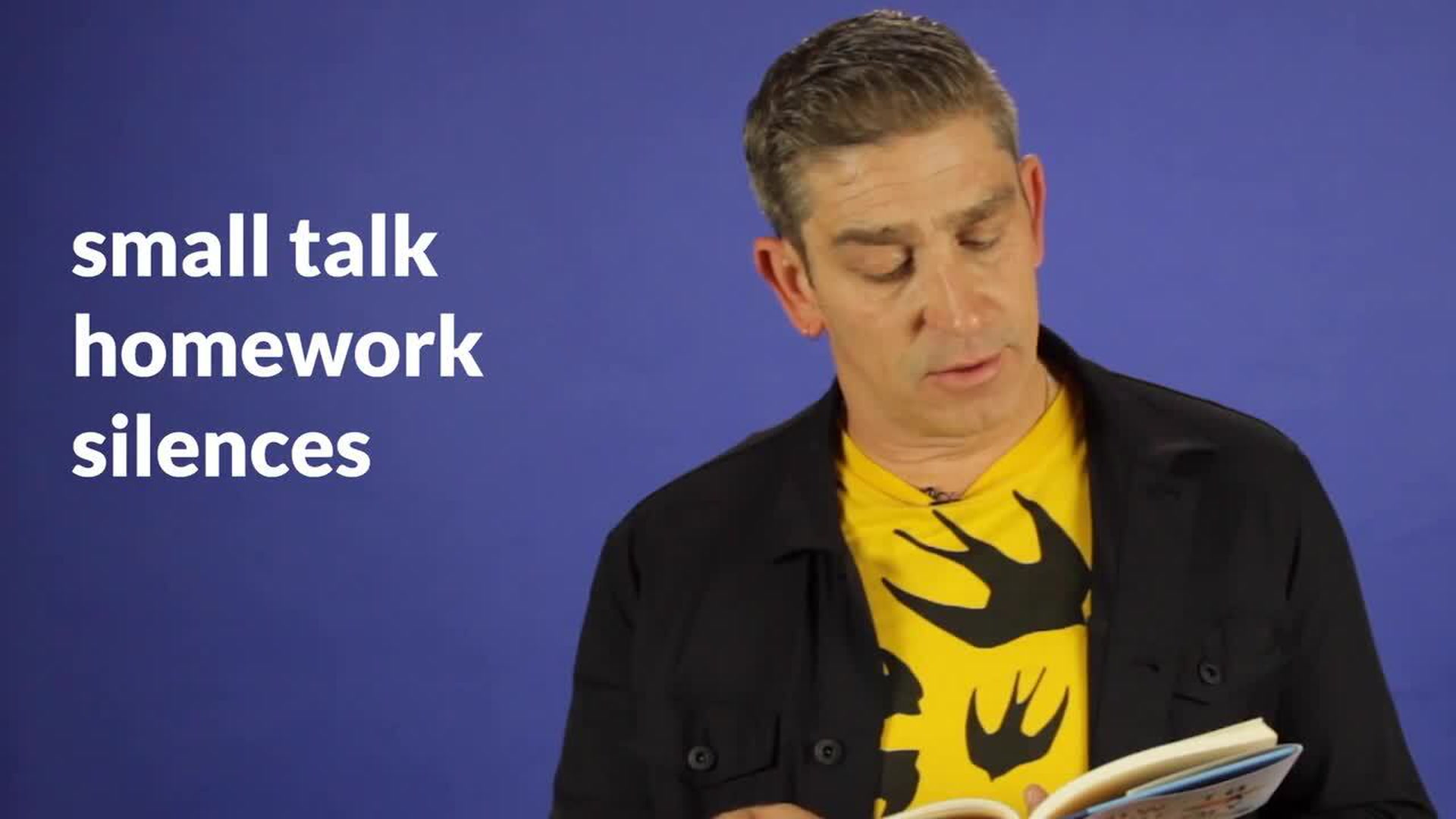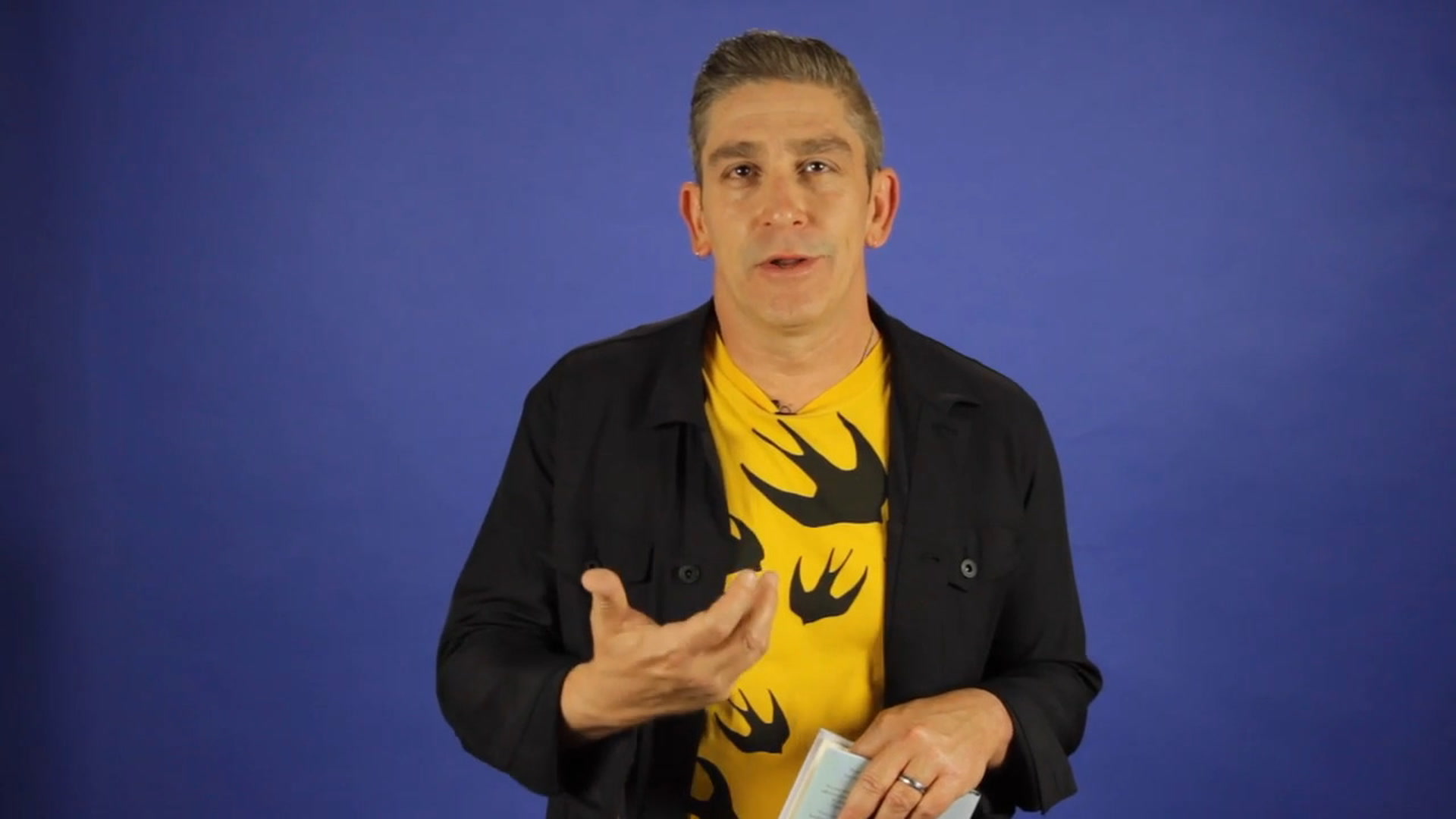Books
Richard Blanco on How to Love a Country (and Write a Poem)

The first gay, Latinx, and immigrant inaugural poet reads from his new book, How to Love a Country, and provides a lesson in writing.
April 30 2019 6:03 PM EST
dnlreynolds
By continuing to use our site, you agree to our Privacy Policy and Terms of Use.

The first gay, Latinx, and immigrant inaugural poet reads from his new book, How to Love a Country, and provides a lesson in writing.
It may not always be easy to love America -- especially if one is a member of a marginalized group in an era when hate crimes are on the rise.
Richard Blanco -- as the first gay, first Latinx, and first immigrant inaugural poet -- sits at the intersection of several of these communities. However, he manages to find the love amidst the hatred and division (although he lays those bare, too) in his new poetry book, How to Love a Country.
"Different times demand a different kind of poem," said Blanco, who saw his role as the inaugural poet in 2013 as an opportunity for "stepping outside of my comfort zone" toward more political material.
Many know the Cuban-American poet from his recitation of "One Today" at the second inauguration of Barack Obama. "Matters of the Sea," which he read at the reopening of the U.S. embassy in Cuba, was also commissioned to commemorate a historic moment under the Democrat president's administration.
His work also advocates for LGBTQ equality. "Until We Could," a moving argument for marriage equality, has recently taken on new meaning for the poet, as Blanco is now engaged. "Between [Another Door]," which he reads below, shows the tensions he felt as a young gay person who felt his own queer identity at conflict with the heteronormative world around him.

"Matters of the Sea," "Until We Could," and "Between [Another Door]" are included in Blanco's Country -- but so are poems like "Declaration of Inter-Dependence," "Election Year," and "Dreaming a Wall," which are in direct response to the victory of Donald Trump in the 2016 presidential election and the divisiveness it exposed in the United States.
Like in "One Today," Blanco's poems reach for the ties that bind. Although Trump did not have his own inaugural poet, Blanco is essentially still filling this role, providing bipartisan poetry that elevates what connects us as human beings while also highlighting the ugly truths of prejudice.
The ambitious collection addresses issues like race, immigration, gender, sexuality, gun violence, bullying, and more. As Blanco describes in the afterword of his book, he wanted to join the chorus of forebears like Walt Whitman, James Baldwin, Adrienne Rich, and Allen Ginsberg in creating "socially conscious poetry that responds to the most pressing concerns of the day."
Blanco strove to be an "emotional historian" in How to Love a Country, which is also a catalog of tragedies: Parkland, Pulse, the Boston Marathon bombing, the 1981 lynching of Michael Donald. The poet's role, he believes, is to capture the emotional truth that "the news and the media are not going to record."
This poet must work to offer "compassion, to offer us a way of a new way of looking at something that ultimately leads to, maybe, a change in consciousness," said Blanco. "That's something our pain does, right? That shows us a dimension of something we're not always thinking about."
Yet, Blanco did not want to "just preach to the choir" in How to Love a Country. He strove to distance himself from his public perception as "Obama's poet" and have his work speak to a broader audience "across the aisle."
"I wanted to go beyond the expected," he said.
[Related: "Poem by Richard Blanco: 'El Americano in the Mirror'"]
Poetry offers that necessary role in these turbulent times. Unlike the daily deluge of cable news or social media, the medium encourages readers to pause and contemplate the meaning of the events around them. This could help get to "the root of the problem instead of just banging on a drum and not really hearing each other," Blanco said.
Country also has its share of autobiographical poems, in which Blanco wrestles with his own insecurities tied to his identities. For example, "El Americano in the Mirror" is both a poem and an apology for a person he bulled in his youth for being a "sissy ass americano." It's a searing slice of honesty that forces the reader to confront their own inner prejudices, no matter their background.
"Just because you're a little gay, Cuban kid from a working-class family, it doesn't mean that you can't throw a punch and be hateful. I live to regret it," he said of the boy he bullied. "We [all] have that capacity to misbehave, to not do the right thing all the time."
Ultimately, Blanco hopes How to Love a Country makes people from all political persuasions "think just a little bit" about themselves, their biases, and the political polarization that has divided America. These poems can help readers see "ourselves as people and not colors on a map," he said with hope.
How to Love a Country is now available for purchase online and wherever good books are sold. Find a reading near you at Richard-Blanco.com. And in celebration of National Poetry Month, write a poem of your own with some advice from Blanco in the video below.

Videos produced by Lumiere Rostick.
Charlie Kirk DID say stoning gay people was the 'perfect law' — and these other heinous quotes